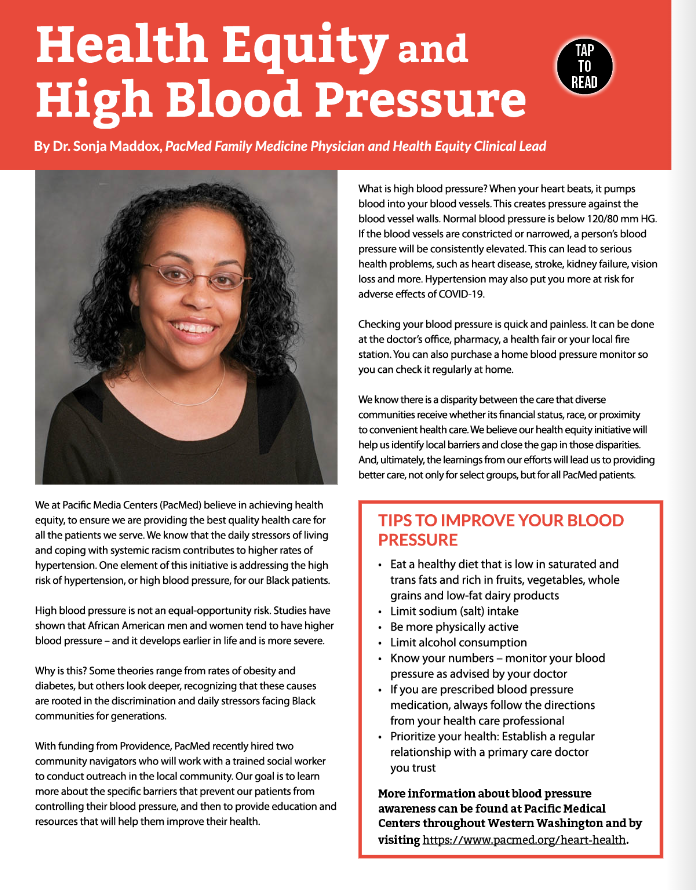Mental & emotional health awareness and support for a better future
Warm 106.9: Mental and emotional health issues have either become more of a problem, or maybe we are beginning to be more open. Being open and seeking support is an important step. Serena touches on some aspects of the challenges of this season on our mental health, both the shorter and darker days as well as all the holidays and feelings of obligation.
Health Equity and High Blood Pressure

If restoring function is a puzzle, this physician sees all the pieces
Care plans and treatments to help patients get back to the activities they love
In her third year of medical school, Tam Quach, DO, helped treat a severely debilitated patient with so many internal and external injuries, she couldn’t walk.
“By the time I left a month later, she was taking her first steps! It was very rewarding to see her progress,” Dr. Tam says.
Witnessing that transformation inspired Dr. Tam to specialize in Physiatry, also known as Physical Medicine and Rehabilitation, and now she’s bringing that practice to Pacific Medical Centers (PacMed) in Seattle.
“Physiatry focuses on restoring function,” she explains. “We treat anything that affects function, including brain injury, strokes, amputations, musculoskeletal pain and peripheral joint pain. We develop care plans to help patients get back to daily life.”
Continuum of care
Physiatrists are highly trained physicians who look at the whole body. Dr. Tam’s care plans include close collaboration with other specialists like physical therapists, surgeons and prosthetists, and can incorporate virtual visits for added convenience.
“We use a combination of therapy, medication and injections to get the patient’s quality of life back. We can’t always take away all pain, but our goal is to restore as much function as possible, and get you back to the things you enjoy,” she says.
The most common injury Dr. Tam treats is back pain, and she’s also very interested in amputee care.
“It’s important for patients to realize that their amputation doesn’t have to stop them from having a normal, functional life,” Dr. Tam says. “Physiatrists are trained in gait analysis and we work closely with prosthetists to ensure that patients are getting the proper prosthetic parts, best suited for them. We help bridge many gaps pre- and post-operation.”
Consistency and patience
When it comes to treatment plans, Dr. Tam says consistency and commitment are much more important than a fancy gym with special equipment.
“Recovery doesn’t happen overnight, and most patients only visit a physical therapist once or twice a week. Restoring function requires a lot of effort, and most of that comes from the patient committing to their exercises at home.”
At work, Dr. Tam coordinates her patients’ care and makes sense of their intricate, complicated needs. In her down time, she loves to use that patience and perspective to tackle 5000-piece jigsaw puzzles.
“I feel so much satisfaction when I find the right puzzle piece! Put on a crime podcast, and I’m good to go on a puzzle for hours,” she laughs.
Find Dr. Tam at PacMed clinics in Beacon Hill, Federal Way, and Renton. To make an appointment, call 1.888.472.2633 or click here.





